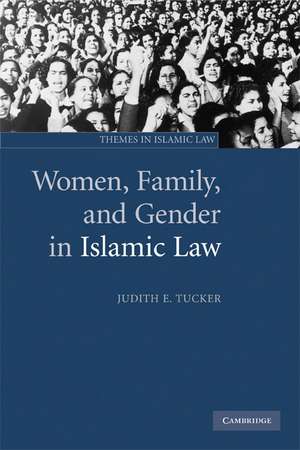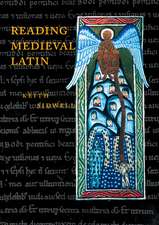Women, Family, and Gender in Islamic Law: Themes in Islamic Law, cartea 3
Autor Judith E. Tuckeren Limba Engleză Paperback – 15 oct 2008
| Toate formatele și edițiile | Preț | Express |
|---|---|---|
| Paperback (1) | 284.98 lei 6-8 săpt. | |
| Cambridge University Press – 15 oct 2008 | 284.98 lei 6-8 săpt. | |
| Hardback (1) | 555.50 lei 6-8 săpt. | |
| Cambridge University Press – 15 oct 2008 | 555.50 lei 6-8 săpt. |
Preț: 284.98 lei
Nou
54.53€ • 56.93$ • 45.13£
Carte tipărită la comandă
Livrare economică 04-18 aprilie
Specificații
ISBN-10: 0521537479
Pagini: 268
Ilustrații: 2 maps
Dimensiuni: 152 x 228 x 16 mm
Greutate: 0.39 kg
Editura: Cambridge University Press
Colecția Cambridge University Press
Seria Themes in Islamic Law
Locul publicării:Cambridge, United Kingdom
Cuprins
Recenzii
'The work undoubtedly constitutes an excellent contribution to the field of women and gender studies of Islamic Law, [Tucker's] tour de force destined to become an important reference.' Journal of Shi'a Islamic Studies
'Clearly conceptualized, admirably researched and lucidly written, Judth Tucker's survey of Islamic legal thought and practice relating to women, gender and the family builds on two decades of monographic studies on pre-modern Muslim courts and more recent legislative reforms … In doing so, it provides an essential resource for considering how major doctrines have intersected and combined to shape Muslim women's lives through history and into the present.' Journal of the American Oriental Society
Descriere
In what ways has Islamic law discriminated against women and privileged men? What rights and power have been accorded to Muslim women, and how have they used the legal system to enhance their social and economic position? In an analysis of Islamic law through the prism of gender, Judith Tucker tackles these complex questions relating to the position of women in Islamic society, and to the ways in which the legal system impacted on the family, property rights, space and sexuality, from classical and medieval times to the present. Working with concepts drawn from feminist legal theory and by using particular cases to illustrate her arguments, the author systematically addresses questions of discrimination and expectation - what did men expect of their womenfolk - and of how the language of the law contributed to that discrimination, infecting the system and all those who participated in it.
































